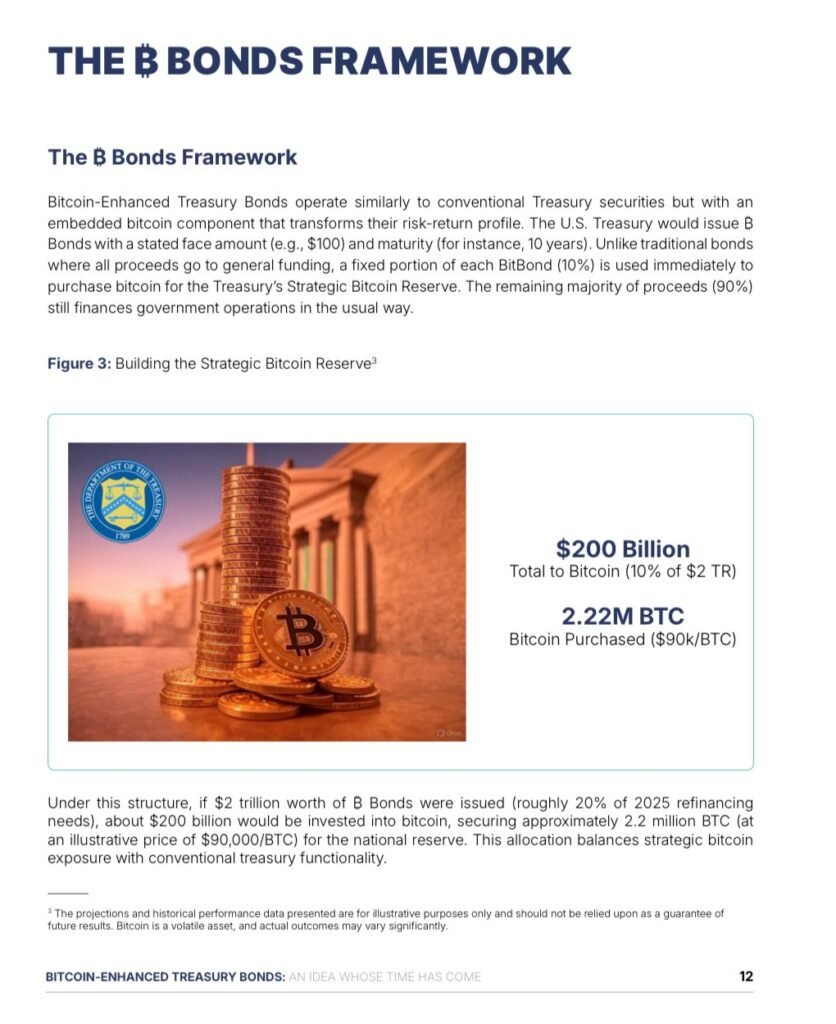
The Bitcoin Policy Institute has indeed proposed a framework for the United States to acquire $200 billion worth of Bitcoin through a novel financial instrument called “Bit Bonds.” This concept was initially introduced by Andrew Hohns, CEO of Newmarket Capital, during a keynote speech at the Bitcoin For America event hosted by the Bitcoin Policy Institute on March 11, 2025. The idea gained further traction with a detailed policy framework released by the Institute, aligning with the Strategic Bitcoin Reserve initiative announced by President Donald Trump via executive order earlier in March 2025.
Under this framework, the U.S. Treasury would issue $2 trillion in “Bitcoin-Enhanced Treasury Bonds” (or Bit Bonds), with 10% of the proceeds—equating to $200 billion—allocated to purchasing Bitcoin. The remaining 90% would support conventional government financing. These bonds would carry a low interest rate of 1%, compared to the current 4.5% yield on 10-year U.S. Treasury notes, potentially saving the government $70 billion annually in interest costs on the $2 trillion issuance, or $700 billion over a decade. After accounting for the $200 billion Bitcoin investment, the net present value savings could still amount to approximately $354 billion, making the proposal “budget-neutral” as mandated by Trump’s executive order.
The Bit Bonds are designed to appeal to both institutional and retail investors by offering exposure to Bitcoin’s potential upside while maintaining the security of Treasury bonds. The framework suggests tax-exempt treatment for interest and Bitcoin-linked gains, with an estimated 132 million U.S. households potentially participating at an average investment of $3,025 per household. The Bitcoin purchases would be executed gradually via dollar-cost averaging to minimize market disruption, funding a Strategic Bitcoin Reserve aimed at enhancing financial resilience and possibly offsetting national debt if Bitcoin appreciates significantly over time.
While this framework has sparked considerable discussion, it remains a proposal rather than an enacted policy as of April 1, 2025. No official confirmation from the U.S. Treasury or government has been reported, but the idea reflects a growing interest in integrating Bitcoin into national financial strategy.
















